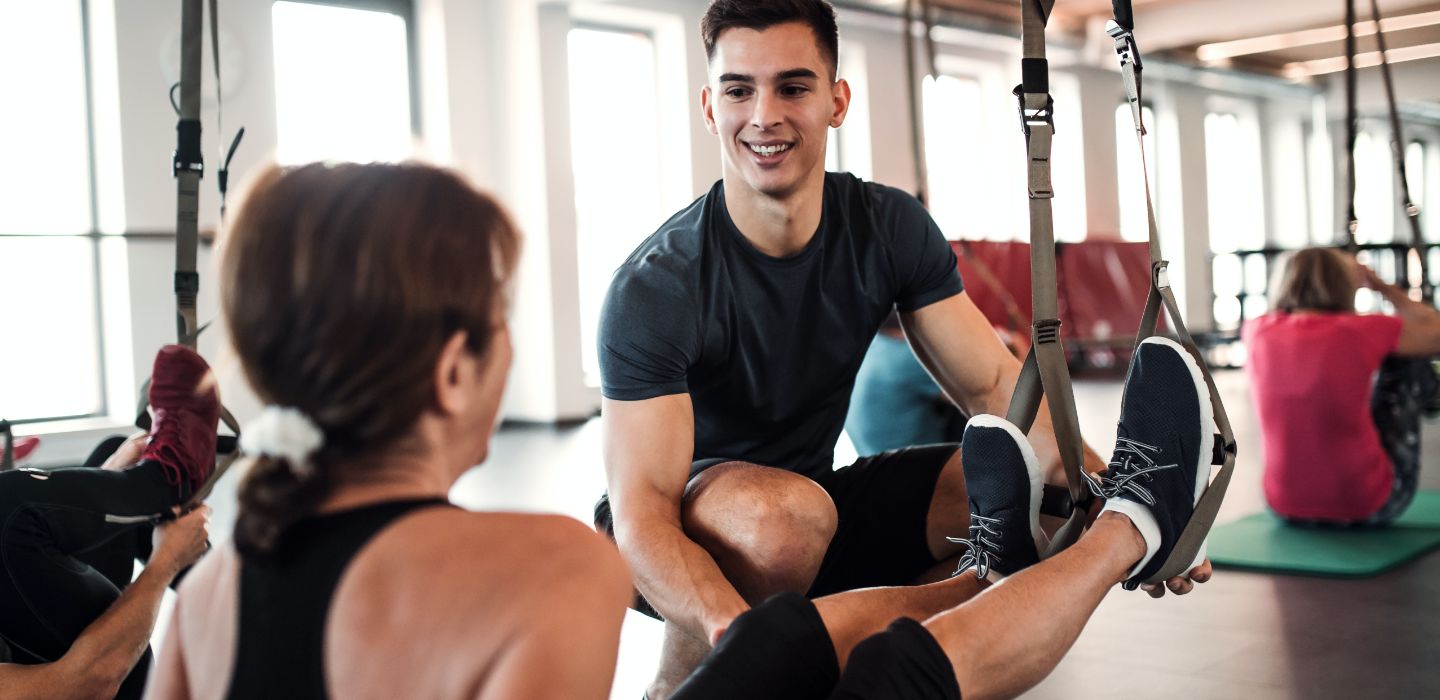CRICOS Code 087942A
Students must complete the following core units and one elective unit.

Stage 1: 2-3 Trimesters (8-12 months)
Stage 2: 2 Semesters (12 months)
Curtin Bentley
Course not available to Australian students
Additional costs may apply depending on your course and stream
In this course, you’ll gain theoretical and practical understanding of exercise and sport physiology, biomechanics, motor control and learning and skill acquisition, and exercise and sport psychology.
The emphasis on client-centred practice will help you develop strong interpersonal communication, critical thinking and problem-solving skills.
In your first year, you’ll learn the foundations of exercise science and study interprofessional units with students from other health disciplines.
Bachelor of Science (Exercise & Sport Science)
Students must complete the following core units and one elective unit.
Students must complete the following core units.
Semester 1
| Code | Title |
|---|---|
| FPHP1000S | Foundations for Professional Health Practice |
| PCEX2001S | Professional Communication in Exercise Science |
| HPE1000* | Human Physiology for Exercise Science* |
| EIHP1001 | Evidence Informed Health Practice |
Semester 2
| Code | Title |
|---|---|
| FA1002 | Functional Anatomy |
| ICHB1006 | Indigenous Cultures and Health Behaviours |
| ESH1001S* | Exercise Science for Health* |
| IPSY1000 | Introduction to Psychology |
*Service taught units are units where Curtin College students join Curtin University students in the same classroom. Such units are taught by university staff and Curtin College students will be enrolled as Curtin University students. Curtin University Policies and Processes will apply to these units.
Stage 2 Units – 25 Credit Points Each
The role of empirical evidence in making decisions in health practice. Introduction to different types of research methodologies; measurement; observation; data collection; research ethics; bio-statistical analysis; strategies to understand, question and evaluate evidence.
This unit builds on an understanding of the fundamentals of physiology and develops students’ knowledge of physical activity and exercise and their relationship to health. Physiological and psychological responses to exercise in healthy populations. Assessment of exercise capacity and factors affecting exercise prescription and engagement.
Introduction to ethical decision making in the context of professional health practice. Application of academic standards and development of skills required for studying at university. Introduction to professional requirements which impact on the safety and quality of client centred service/care when working in a health setting. Examination of differences in Australian and international health systems. Students will learn the value of diversity in inter-professional practice through working in teams. Students will reflect on their learning and begin to develop lifelong learning skills.
Development of foundation competencies in understanding neuromusculoskeletal anatomy of the trunk, upper and lower limbs as a basis to understanding normal human movement.
Foundation knowledge of human physiology and the physiological changes that occur through the human lifespan as pertinent to exercise science.
Apply principles of leadership, professional communication and ethics to the professional practices of exercise and sports science. Includes client centred written and verbal communication for interactions across cultures, health beliefs and health behaviours.
In this unit students will examine culture and diversity within local, national and global, Indigenous populations; impacts of specific policies and historical events on Indigenous Australians and their effects on health and health care access. Students will analyse health outcomes of Indigenous Australians and explore underlying social determinants, and how health professionals can work collaboratively in consultation with Indigenous individuals, families, communities and organisations.
Broad outline of the nature, methods, and fields of psychology. Introduction to psychology and methodological issues related to the study of human beings and the relevance of both for interactions with individuals and groups. Introduction to social psychology, personality, development, learning, memory, and motivation.